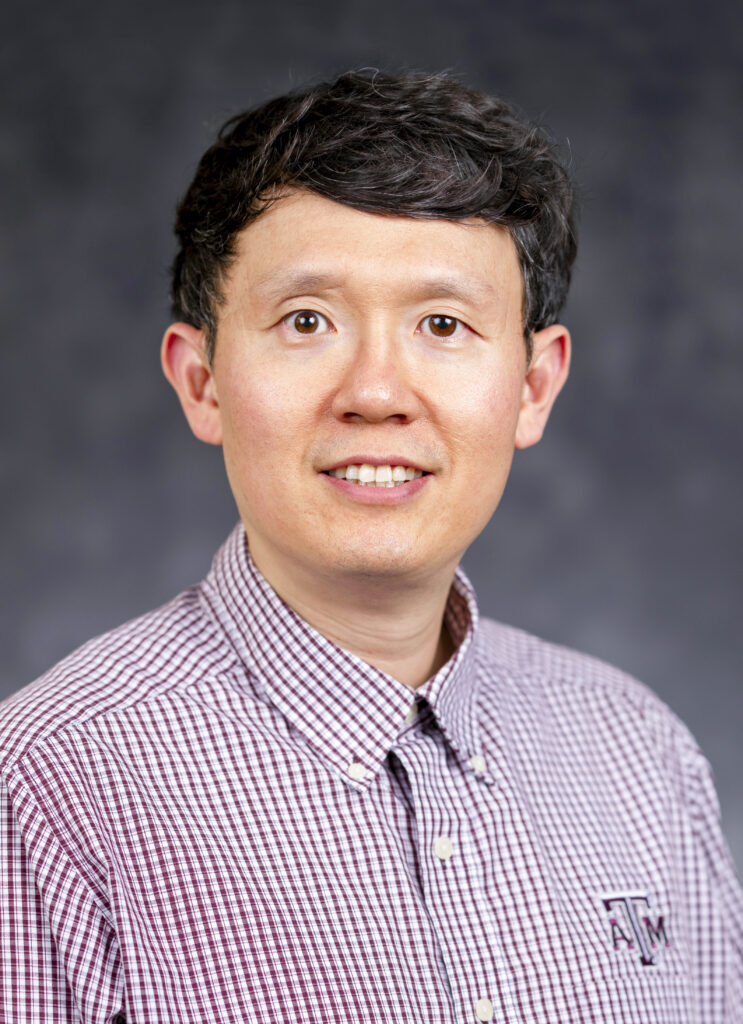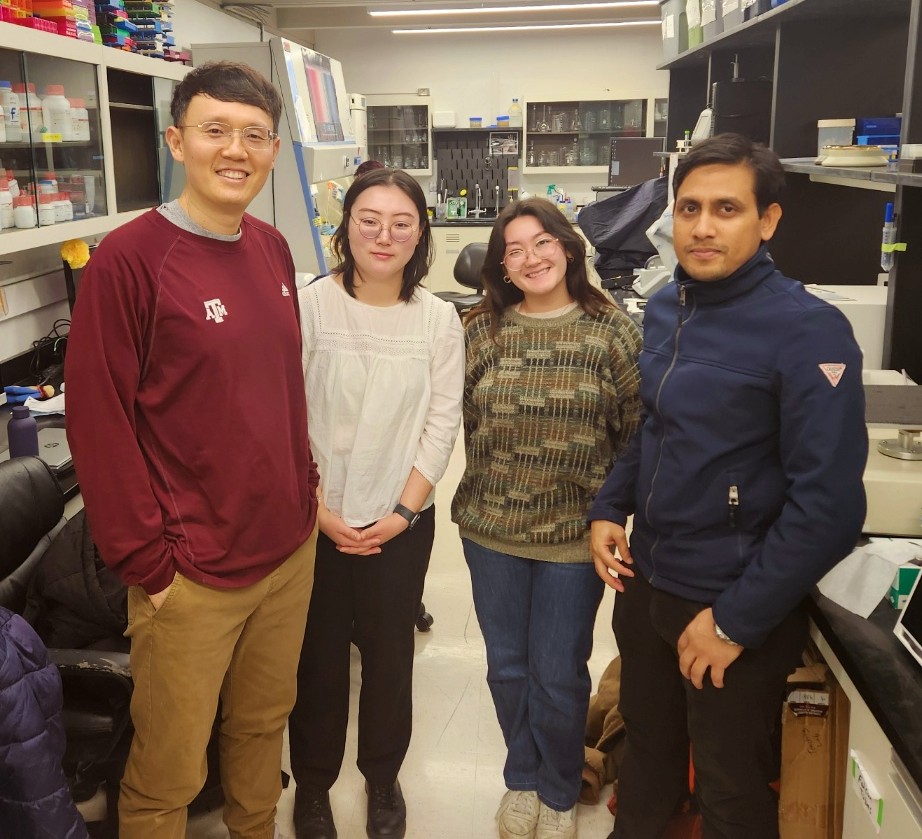Fermentation scientist and registered dietician provides new perspectives on foods
Ku blends science and nutrition in innovating brewing process to enhance quality of human life
When the Department of Food Science and Technology was looking for an expert in fermentation and brewing science, as well as someone knowledgeable about the microbiome and probiotics, they knew they had found the right person in scientist and registered dietician Seockmo Ku, Ph.D.

Ku, who joined the department last year as an assistant professor, was born in South Korea and raised in a culture rich in the tradition of fermented foods. From a young age, he watched his grandmother and mother preparing kimchi and the traditional Korean sake known as makgeolli.
“This was where I developed my interest in microbiology and fermentation,” Ku said. “This early exposure not only fostered a deep appreciation for traditional cultural practices, but it also left me intrigued about the potential of fermentation science to enhance human health.”
Blending biology and nutrition
During his undergraduate studies, Ku’s choice to double-major in molecular biology and food and nutrition laid the groundwork for his burgeoning interest in food microbiology. He further explored this interest during his master’s program in food and nutrition.
“After earning my master’s degree, I had the opportunity to work as a food research and development scientist at CJ CheilJedang Food R&D Center in South Korea,” he said. “There, I developed and launched various value-added food products.”
While working as an industry researcher, Ku also obtained his registered dietician certification.
“This broad background in food science and nutrition provided me with insights that fueled the commercialization of various products that received positive consumer responses in the Asian market,” he said.
The intersection of pure and applied sciences within food science and technology is truly fascinating. It addresses a broad spectrum of scientific problems and offers solutions that can be practically applied, making the field incredibly appealing.”
Seockmo Ku
Ph.D.
Ku now views himself as a conduit between food science and nutrition.
“This combination of academic pursuits and practical applications in my early career solidified my interest in food science and technology by merging my fascination with both the scientific and nutritional aspects of the field,” he explained.
Using next-generation probiotics in alcohol fermentation
Ku’s academic and research endeavors have focused on probiotics, specifically Bifidobacterium and Lactobacillus, as this food science area is growing due to advancements in microbiome analysis via next-generation sequencing. The field of next-generation probiotics, including strains such as Prevotella and Parabacteroides, has further captured Ku’s interest because of the significant academic and commercial potential of probiotics in human health and nutrition.
“In the past six years, I have been applying my experience with probiotics to the development of alcoholic beverages,” he said. “As a fermentation scientist who teaches a variety of courses, I have noted a significant interest among students in the production of these beverages.”
Ku and his colleagues have recently been working on characterizing Lactobacillus strains that not only show alcohol resistance but also produce the alcohol dehydrogenase and acetaldehyde dehydrogenase enzymes primarily involved in the breakdown of alcohol.
“This research has impelled us to apply these strains in the production of sour beer and sake, to innovate the brewing process and enhance the functional qualities of these beverages,” he said. “This ongoing work demonstrates how my professional journey and personal interests have merged and now guide my contributions in the field of fermentation and brewing science.”
Fermentation, brewing science and food safety
In fermentation science, Ku primarily focuses on lactic acid and alcohol fermentation. In the area of lactic acid fermentation, he focuses on identifying new probiotic strains, characterizing pro-and prebiotic candidates, evaluating their health effects and conducting biosafety evaluations.
“I also work on the production and separation of postbiotic molecules – the nutrients that prebiotic bacteria produce – from lactic acid bacterial cell strains for commercialization,” he said. “In brewing science, I explore the production of various alcoholic beverages, including beer, whiskey and sake.”

Ku’s recent research, funded by a U.S. Department of Agriculture grant, involves using perennial sorghum in koji production and brewing beer and traditional Korean sake. These beverages benefit from complex bioprocessing that significantly enhances their flavor profiles. He also uses microbiome analysis to understand the characteristics of the microbes that act as microbial cell factories during fermentation.
“My experience in microbiome research provides a foundation for studying both probiotics and alcoholic beverage production,” he said.
Ku has also conducted research on using probiotic cell strains to enhance the functionality of phytochemical glycosides.
In food safety, he has investigated how to accelerate microbial identification by reducing the enrichment steps, which alter a nutritional medium so that only a favored microbe can grow. This process is currently a major bottleneck in microbial detection. Ku’s contribution has been recognized by an FDA Food Safety Challenge Grand Prize award.
Next-generation food science and technology research
“The intersection of pure and applied sciences within food science and technology is truly fascinating,” Ku said. “This field effectively integrates product production, quality control, human health, quality of life and sustainability. It addresses a broad spectrum of scientific problems and offers solutions that can be practically applied, making the field incredibly appealing.”
He said the ability to transform concepts imagined as a scholar into actual products as a consumer while deriving tangible outcomes from research is profoundly rewarding.
“The advent of next-generation sequencing technologies has further spotlighted new probiotic candidates and next-generation probiotics,” he said. “However, the scarcity of research presents an exciting opportunity for me to contribute significantly to the field of fermentation science.”
Ku said through advanced research and quality advising in fermentation science, he hopes to be an effective mentor for food science and technology students and enhance their skills in fermentation science.
He is also committed to using his research to assist socially and economically disadvantaged communities. Specifically, he plans to develop and engage services to support students with health challenges, such as autism or attention-deficit/hyperactivity disorder, to help them better acclimate to the academic community.





